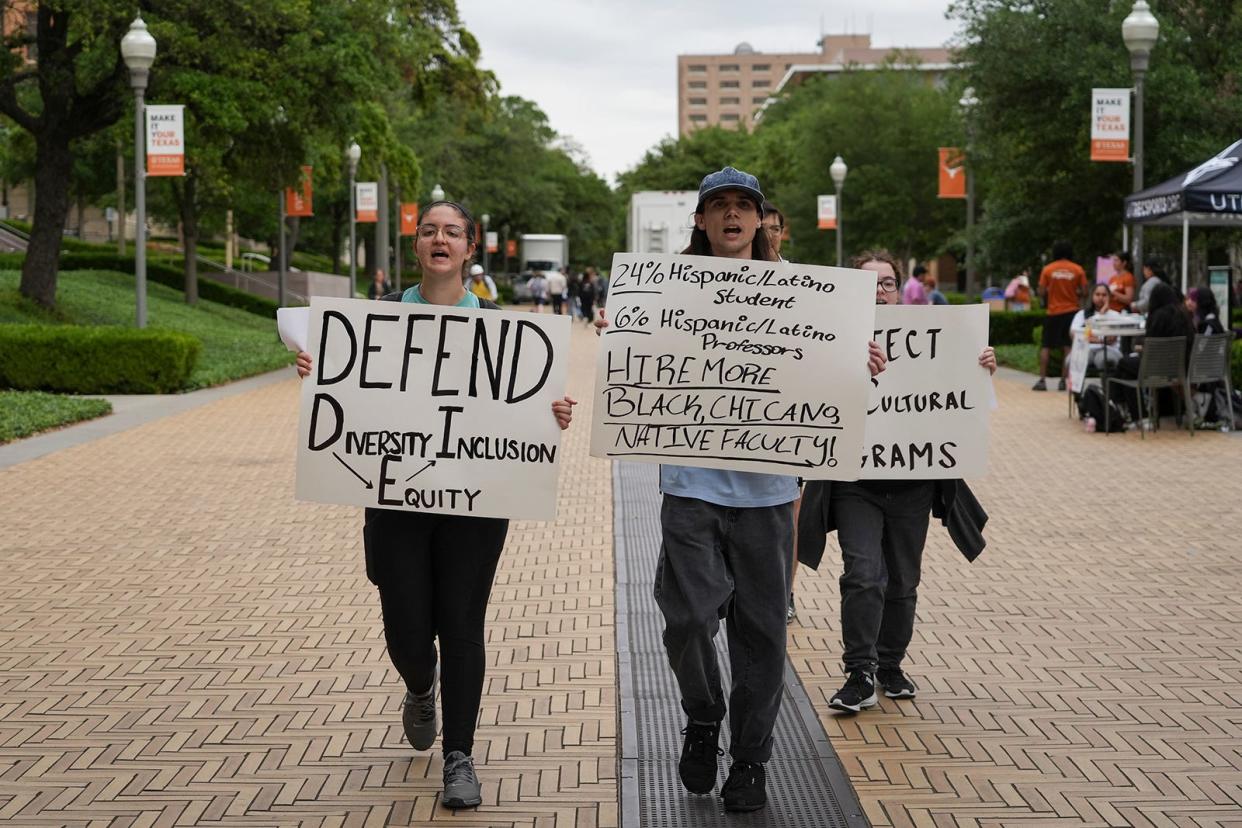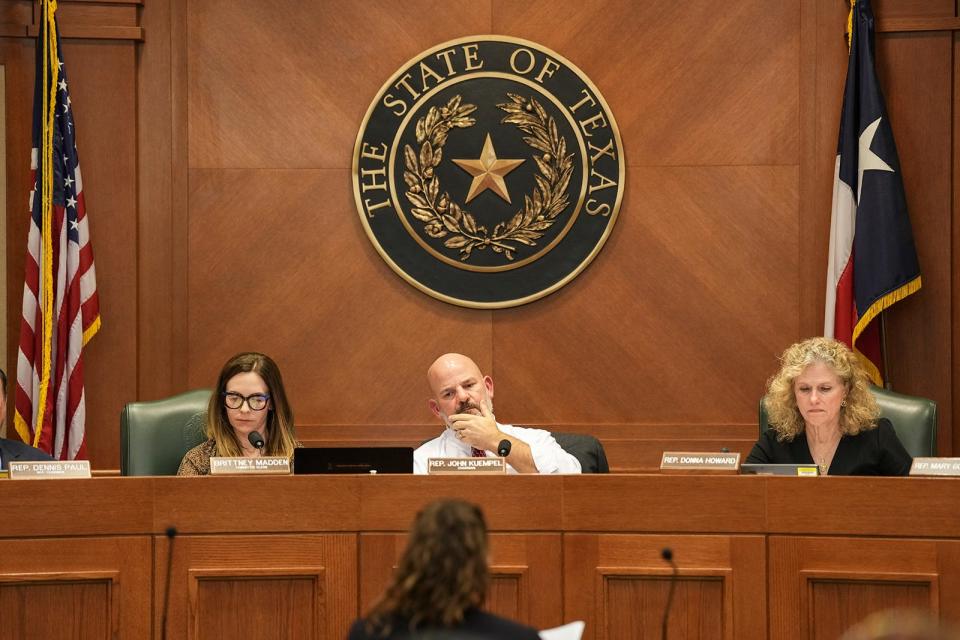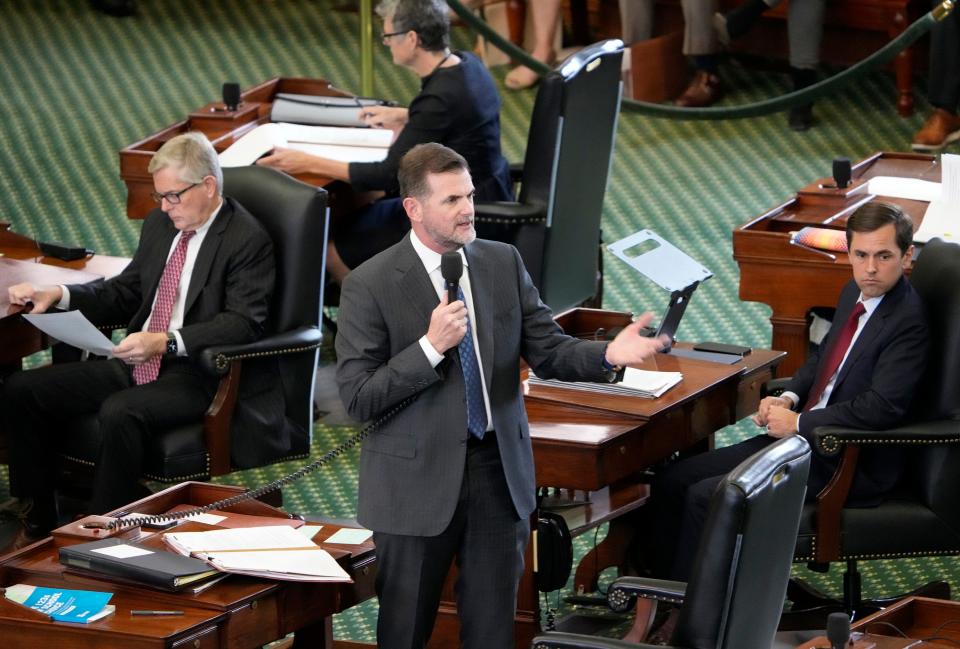The DEI ban at Texas colleges went into effect Monday. Here's how some groups are reacting

As the new year rolled in, so, too, did Senate Bill 17 — a state ban on diversity, equity and inclusion offices and initiatives at Texas public universities and colleges.
Gov. Greg Abbott signed the bill into law in June, and since then, institutions of higher education have been ending and adjusting their programs and messaging to comply with SB 17, which went into effect Monday. Institutions must provide proof of their compliance with the law to access funding for the next fiscal year.
In the run-up to the new law, legislative and civil rights groups have issued statements about the legislation's affect on historically marginalized communities. Here’s what they said:
'Generational impacts on student success and retention'
In a statement Monday, the Texas Legislative Black Caucus said that DEI offices “were lifelines” for people with marginalized backgrounds, providing access to resources and providing belonging and inclusion.
In a joint statement with its partners — the Texas Education Policy Institute, the Texas NAACP, Texas House Democratic Caucus, Senate Democratic Caucus, Mexican American Legislative Caucus, Senate Hispanic Caucus, and LGBTQIA+ Caucus — the caucus said the lack of resources for DEI initiatives creates “a void in addressing systemic inequalities and fostering an inclusive learning environment for all students.”
“The absence of state-funded Diversity, Equity, and Inclusion (DEI) offices on college campuses creates a jarring disconnect, depriving students of invaluable resources and support systems that were essential in ensuring a conducive learning environment for all,” the statement said. “As these students return to their academic pursuits, they are met not only with empty spaces but also with the absence of crucial assistance, guidance, and advocacy that these offices provided.”
In a post on X, formerly Twitter, with the statement, the Texas Legislative Black Caucus wrote, “State-led divestments in higher ed will have generational impacts on student success and retention.”

UT professors' group decries ban on DEI
The University of Texas chapter of the American Association of University Professors said in a post last week that the ending of DEI offices and initiatives at universities and colleges in Texas marked a sad day for higher education:
“January 1 is a sad day for public colleges and universities in Texas. We want to thank @DEI officers for all you have done at @utaustin and elsewhere to increase diversity, equity and inclusion for students and faculty. We wish you a soft landing after a tumultuous year.”
Why the author of SB 17 pushed for the bill
Sen. Brandon Creighton, R-Conroe, who authored SB 17, has not issued a statement on the bill since it went into effect, but he did say in June, when the bill was signed into law, that his bill "is the most significant ban on Diversity, Equity and Inclusion (DEI) in higher education in the nation."
“With this bold, forward-thinking legislation to eliminate DEI programs, Texas is leading the nation, and ensuring our campuses return to focusing on the strength of diversity and promoting a merit-based approach where individuals are judged on their qualifications, skills, and contributions," Creighton said in his June 14 statement. “What sets SB 17 apart from other proposals is that the legislation delivers strong enforcement with mandates to return Texas colleges and universities to their core mission — educate and innovate.”

Texas Students for DEI to continue advocacy
In the months since SB 17 was debated in the Legislature, Texas Students for DEI, one of the leading student groups against the bill, has been working to educate people about diversity, equity and inclusion and highlighting stories on diversity. In a statement in the spring, the group wrote that it will not stop is advocacy.
"The implementation of DEI offices and practices may be banned within institutes of higher education, but the principles of diversity, equity and inclusion can never be removed from us, the people," the group wrote in a statement in May. "To everyone nervous about the implications of these attacks on critical thinking and the future of our democracy: we are in this fight together. Texas Students for DEI will not stop until DIVERSITY, EQUITY and INCLUSION are accessible to and respected by all."
This article originally appeared on Austin American-Statesman: Texas DEI ban in colleges is in effect. How students, groups react

